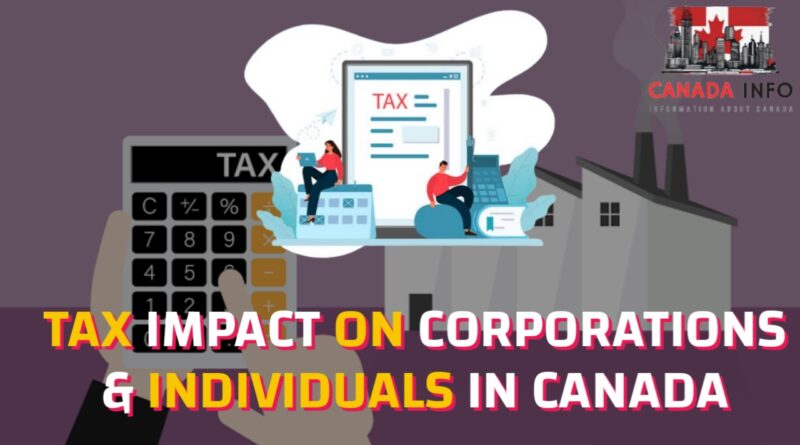Impact of Taxes on Corporations and Individuals in Canada
Taxation is a fundamental aspect of any economy, and Canada is no exception. Understanding how corporations and individuals are taxed in Canada is crucial for both compliance and effective financial planning. In this article, we will delve into the taxation system for corporations and individuals in Canada, addressing common questions and shedding light on important tax matters.
Taxes for Corporations in Canada:
Corporations operating in Canada are subject to various taxes, including federal and provincial corporate income taxes. The federal corporate tax rate is currently set at 15%, with additional provincial taxes varying across different regions. In addition to income taxes, corporations may also be liable for capital taxes and other levies. Understanding the intricacies of corporate taxation is essential for businesses to manage their tax liabilities effectively.
Taxation of Individuals in Canada:
Individuals in Canada are taxed on their worldwide income, which encompasses earnings from employment, investments, rental properties, and other sources. Canada employs a progressive tax system, where higher income earners face higher tax rates. However, various deductions, credits, and tax-saving strategies are available to individuals to minimize their tax burden. These may include deductions for contributions to registered retirement savings plans (RRSPs) and tax credits for expenses like childcare and educational expenses.
Taxation on Worldwide Income:
Canadian residents, both individuals, and corporations, are generally taxed in Canada on their worldwide income. This means that income earned domestically and internationally is subject to Canadian taxation. To avoid double taxation, Canada has tax treaties with many countries, allowing for foreign tax credits and other mechanisms to mitigate the tax impact on income earned abroad. Understanding the implications of global taxation is essential for businesses and individuals engaged in international activities.
Personal Liability for Corporation Tax:
In Canada, corporations are separate legal entities from their owners, offering limited liability protection. As such, individuals typically are not personally liable for the tax debts of the corporation. However, directors and officers of corporations may be held personally liable for certain tax-related obligations, such as unpaid payroll deductions or GST/HST remittances, under specific circumstances. It is essential for individuals involved in corporate governance to be aware of their responsibilities and ensure compliance with tax laws to avoid potential liabilities.
In conclusion, taxation in Canada is a multifaceted system that impacts both corporations and individuals. By understanding the various taxes applicable to businesses and individuals, as well as the associated rules and regulations, taxpayers can navigate the Canadian tax landscape more effectively. Seeking professional advice and staying informed about tax developments are essential steps in managing tax obligations and optimizing financial outcomes.

